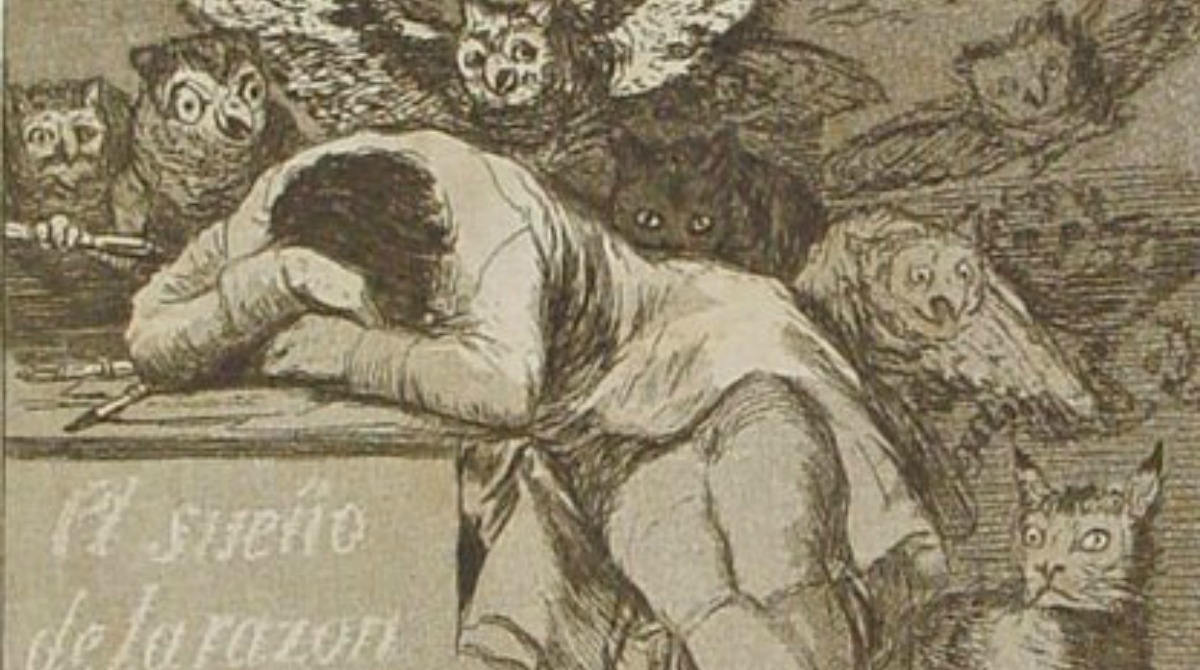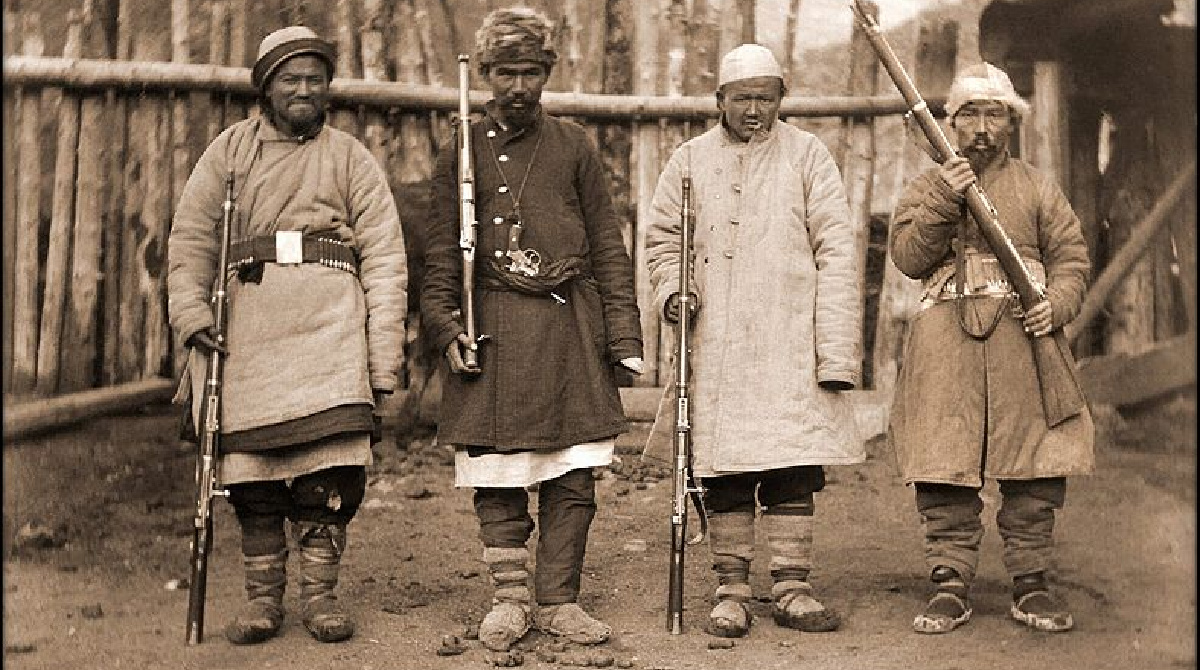The eclipse of reason in the west
Historical statues are being toppled in America; snarling, violent anti-fascists mirror the behaviour they are supposedly against; Britain’s Conservative Government is to enforce hate-speech guidelines which are as contestable as they are subjective. As we watch western societies buckling under the bizarre combination of an apparently extreme concern to protect other people’s feelings with an extreme attempt to suppress other people’s opinions, many of us feel utter bewilderment. How can so many people who are ostensibly devoted to reason and freedom be behaving so irrationally and oppressively?
Having tracked the west’s apparently suicidal cultural trajectory for many years, I analysed this frightening phenomenon in my 2010 book, The World Turned Upside Down: the Global Battle over God, Truth and Power. The conclusions I reached are even more pertinent today. What follows below is an edited extract from the chapter in that book entitled The disenchantment of reason.
THE DISENCHANTMENT OF REASON
The Enlightenment is consuming its own progeny. In the west, the culture of reason is dying, brought down by a loss of faith in progress and in the rationality that underpinned it. The replacement of objective truth by subjective experience has caused science itself to turn into a branch of unreason, underpinning the loss of rational discourse as evidence is hijacked by ideology.
The age of reason was supposed to end all the ills in the world. Since these were held to derive from the suppression by religion of the defining characteristic of the human race, the intellect, it was assumed that once exposed to the full power of the mind these ills would fade away. But just like every other millenarian fantasy, thisbrave new world failed to materialise. War, bigotry and tyranny did not come to an end. Materialism and science were heavily implicated in the two greatest tyrannies of the 20th century. Modernity lost its shine. Technology created anomie. Progress was a threat to the planet. Mankind was viewed as a pollutant. The Enlightenment project was yet another utopia that had failed.
Yet at the same time, any perspective that was not scientific was regarded as illegitimate. Religion and reason were held to be intrinsically incompatible. But this was a fundamental and fatal error. It was religion which gave the world the concepts of progress and reason in the first place. When Nietzsche declared that God was dead, reason was killed off alongside him as Nietzsche knew only too well. Those who wanted science to destroy religion didn’t realise that destroying religion would in turn destroy science. Thus modernity is in danger of disappearing up its own fundament.
As deracinated spirituality turned to pantheism and paganism, it left both rationality and religion far behind. But what was remarkable was that these instincts still embodied not only assumptions specific to Christianity but even its most egregious historical extremes. They all reproduced the specifically Christian motifs of sin, guilt and redemption – whether they involved the sins of capitalism or colonialism, greed or ignorance, which would be redeemed by campaigning for the environment or against America, for the Palestinians or against Creationists.
More remarkably still, these ideologies were secular variations on millenarian fantasies, positing the utopias of a healed planet, a world without war, a society populated by a New Man (insofar as he was to be allowed to exist at all without consuming any natural resources) free of prejudice of any kind, and an age of perfect reason. And just like the millenarian movements of medieval times, these secularideologies have come fully equipped with priesthoods of the elect who guard access to these elevated truths, and savage tactics for dealing with heretics and stifling dissent.
It was in mainland Europe, rather than in more moderate Britain, that the Enlightenment turned into a wholesale attack upon religion. And it is today’s European Union which is engaged in repudiating the Christian heritage which gave rise to Europe’s civilisation. After an acrimonious debate, the EU constitution was drafted without any acknowledgment of Christianity as a source of European civilization and of contemporary Europe’s commitments to human rights and
democracy. And in 2004, the Catholic Italian politician Rocco Buttiglione was turned down for a post as EU Justice Commissioner because he had said that homosexuality was a sin.
If the Jacobins’ Committee of Public Safety had been organised by Max Weber it would have looked just like the European Commission. The EU project claims higher legitimacy than individual member democracies because it embodies ‘universal’ values which cannot be gainsaid. Christian codes of moral order are illegitimate; the ‘universal’ and unchallengeable moral, social and ideological foundations of the EU include gay rights, feminism and multiculturalism.
The EU came into being principally to constrain Germany and prevent fascism from ever again coming to power in Europe. Ironically, therefore, a project to redeem Europe from the crime of giving rise to a tyranny based on the pagan repudiation of religion and reason — albeit fed by prejudices of medieval Christianity – it itself repudiating the Christianity that underpinned reason and stood against paganism.
Moreover, as we have seen the idea that getting rid of religion gets rid of intolerance is the opposite of the case. Secularism breeds its own intolerance against dissenters. Just as with medieval Christianity, it represents a perfectly closed thought system which embodies virtue itself. Heretics must therefore be punished and suppressed. Hence the medieval-style witch-hunts against global warming sceptics, Intelligent Design believers, ‘homophobes’ and the State of Israel, through which persecution the most high-minded of the western intelligentsia believe they are exercising their progressive consciences.
That is because, just as with the medieval millenarian movements, they are attempts to redeem their collective guilt in order to arrive at utopia. Paul Edward Gottfried observes that the desperate efforts being made by western countries – particularly Protestant ones – to elevate themselves morally by receiving large immigrant populations entirely distinct from themselves represents an ostentatious guilt towards their historical past. Gottfried notes that, with sin having been redefined as insensitive behaviour, continuity with religion has not been totally broken.
Contemporary liberal Christianity combines rituals of western self-rejection with established Protestant attitudes about individuality and equality, the radically fallen state of the sinner and the simultaneous self-debasement and self-elevation of the saint’, he writes.
Gottfried cites the Italian historian Augusto del Noce, who in 1977 detected totalitarianism in the ‘scientific’ management of society, the discrediting of traditional authority and the progress of a secular managerialism which attempted to re-code human nature itself. Behind this lay a ‘war against all forms of knowing that are not deemed as scientific’. That, however negated science and reason by turning them into the instruments of ideology. Science was thereby reduced to superstition or a ‘certification wrapped in a mystery’ and attached to a group of privileged power-bearers. The natural course in mass democracy, he wrote, was ‘a process that begins with the loss of the Greek discovery of morality and ends with the negation of philosophic reason and the persecution of dissidents’.
Gottfried says this scientific totalitarianism has been superseded by a new ‘soft totalitarianism’ of social guilt and victim-culture, grounded at least partly in religious sentiment. Hurtful thoughts and insensitive communications are brought relentlessly under surveillance, but such strong-arm tactics are masked by turning bullying into effusive caring or outbursts against prejudice.
He observes: ‘Thus the muzzling of dissent becomes a proactive step in combating bigotry, while in Europe the jailing of those who present the past inappropriately is justified as an attempt to curb “hate”. Inconvenient facts are suppressed or wilfully and proudly distorted as acts of inclusiveness, while those who provide empirical verification for “hurtful” opinions in Canada and Europe suffer grave legal consequences as part of their “resocialisation”.’
It might be described as the totalitarianism of virtue – or yet another tribute to Rousseau in ‘forcing people to be free’. Meanwhile, modernity itself appears in certain respects to have been put into reverse. Family life is now deeply disordered. In Britain, the protection for young girls against sexual abuse enshrined in the lega age of consent to sexual intercourse – a measure which was considered a progressive and humane act when introduced by the Victorians – is now viewed as an affront to the right of children under 16 to have sex.
Similarly, while the huge reduction in rates of illegitimacy was considered a triumph of enlightened progress in the late 19th century, the very concept of illegitimacy has now been abolished in the interests of the ‘right’ of every girl and woman to bring a fatherless child into the world. Respect for the innate value of every human life has been abolished and replaced by the calculus of utility, robbing of their elementary protection both those who have yet to begin life and those who are approaching its end. Education leaves young people in ignorance, unable to distinguish between fact and the propaganda and with their capacity for reasoning dulled by repeated spoon-feeding and a tick-box approach that rewards mediocrity and conformity.
Not only is the west loosening its own grip on reason and modernity, but it is also failing to hold the line against those who are waging an explicit war against them from without. Instead of fighting off the encroachment of Islamic obscurantism — part of the Islamist onslaught aimed at conquering the free world for Islam — the west is embracing it as if it has a cultural death wish.
In part, this is the misguided realpolitik of appeasement; but more deeply, it is once again the complete loss of moral and cultural bearings through multiculturalism and ‘victim culture’, along with the acting out of collective western guilt as an act of expiation to bring about peace on earth – as a result of which truth and justice are turned on their heads.




